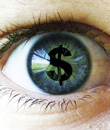SIDS and Co-Sleeping
The University of Queensland’s Centre for Mothers and Babies (UQCMB) is keen to dampen suggestions that all co-sleeping arrangements are inherently dangerous. “Such a blanket statement is misleading,” said Jeanine Young, the Chair of SIDS and Kids National Advisory Council and UQCMB spokesperson. “Parents need to be made aware of all the factors relating to SIDS such as medication use, smoking, alcohol, pets and other children in the bed,” she added. Cultural factors play an important role, too. Prof Sue Kruske from UQCMB stated that “around 95% of indigenous families have co-sleeping arrangements and it’s also very common among our refugee population. It’s naive to suggest that there’s a direct link between bed-sharing and the deaths of these infants. Furthermore, you run a very real risk of alienating these groups from other health services if you don’t provide a more balanced appraisal.” It would seem, in this instance, that ‘moderation in all things’ is timely advice.

 Stethescope rules, OK?
Stethescope rules, OK?
It’s a cliche, but apparently a distinctly trustworthy one. A Curtin University study published in the Journal of Internet Research showed a number of ‘iconic’ medical images to a range of willing participants. The trustworthy stethoscope had twice the positive impact of any other medical symbol. Tthe other items ranged from a reflex hammer, an otoscope and, in a nod to television, wearing scrubs. The results revealed a 95% odds-on rating that an artfully draped stethoscope suggested its owner was ‘honest, trustworthy, ethical and genuine’. Trust me, I have a stethoscope.

Numbers Swell for GP Training
The federal government has announced that a record 1100 junior doctors will take up GP training places in 2013. In WA the number of places will increased to 101 from 92 places this year. By 2014, the government expects to have doubled the number of GPs in training with more being trained in each State and Territory and by 2020 the target is for an extra 5500 GPs and 680 specialist doctors nationwide

Long Arms, Deep Pockets
The Australian Centre of Philanthropy ranked doctors as some of the most generous givers to charity in Australia with four medical specialities ranked in the top 10 occupations who love to give. Anaesthetists were ranked second on the list claiming an average of $2181 in charitable tax deductions, internal medicine specialists were third ($2133), GPs eighth ($1719) and surgeons were ninth, ($1706). Overall 8200 GPs, or almost 46% of the profession, claimed more than $14 million in donations and gave an average of 0.58% of their annual income to charity. CEOs and managing directors were on top of the list claiming on average $3923 each with an impressive total of $162 million claimed. While this should warm the cockles of your heart, the downbeat was the overall percentage of taxpayers who claimed a charitable donation fell from 37.83% to 35.55%, while the percentage of taxable income donated dropped from 0.42% to 0.34%

